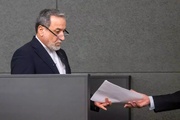Stressing that Russia is deeply concerned over the dangerous developments in Sudan, Evstigneeva cited, "In order to respond effectively to the current crisis in Sudan, we need to understand its root causes and analyze the steps that triggered this outbreak of antagonism. We think that the conflict has been caused largely by mismanagement as regards the political settlement in Sudan."
"A lot of responsibility for that rests with those Western states who believed for a long time they may interfere in the internal affairs of the country. Instead of allowing the political process to remain internal and Sudan-owned, they would rather impose on the Sudanese some pre-cooked solutions that were not based on the national political culture of Sudan and were not accepted by the broader population," she underlined, according to the Permanent Mission of the Russian Federation to the United Nations' website.
Evstigneeva also criticized the fact that the UN Integrated Transition Assistance Mission in Sudan (UNITAMS) also was pushing for the transfer of authority to civilian forces.
The situation in Sudan escalated amid disagreements between the army chief, Abdel Fattah al-Burhan, who also heads the ruling Sovereignty Council, and the head of the paramilitary Rapid Support Forces (RSF), Mohamed Hamdan Dagalo (known as Hemedti), who is al-Burhan’s deputy on the council.
The main points of contention between the two military organizations are related to the timeline and methods of forming a unified armed force of Sudan, as well as who should become the commander-in-chief of the army: a career military officer, which is the option supported by al-Burhan, or an elected civilian president, as Dagalo insists.
On April 15, clashes between the two structures erupted near a military base in Merowe and in the capital, Khartoum.
MP/PR


























Your Comment